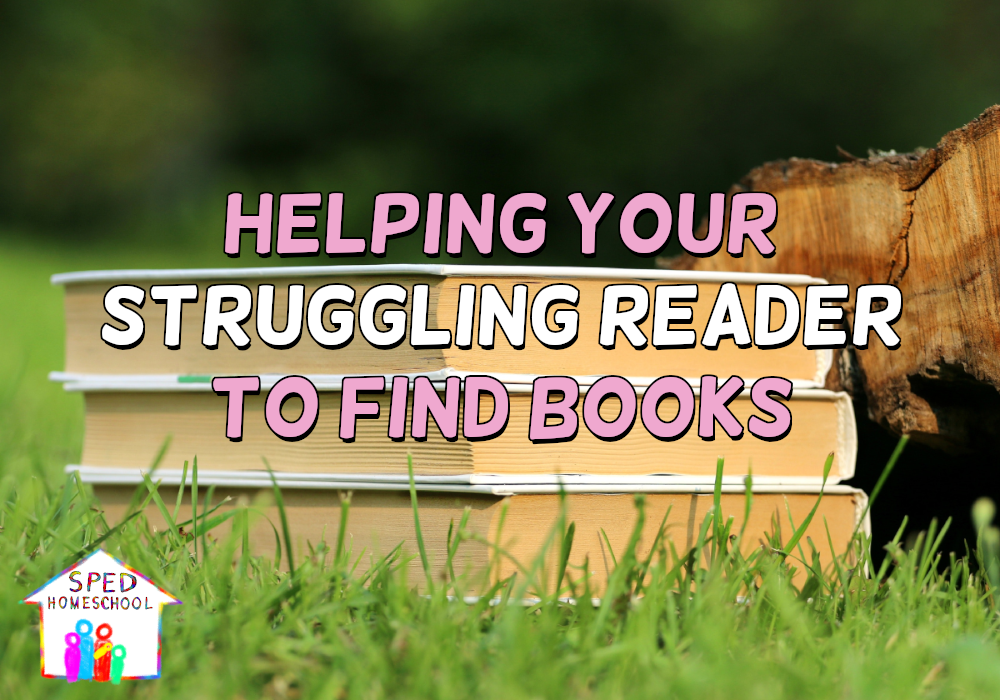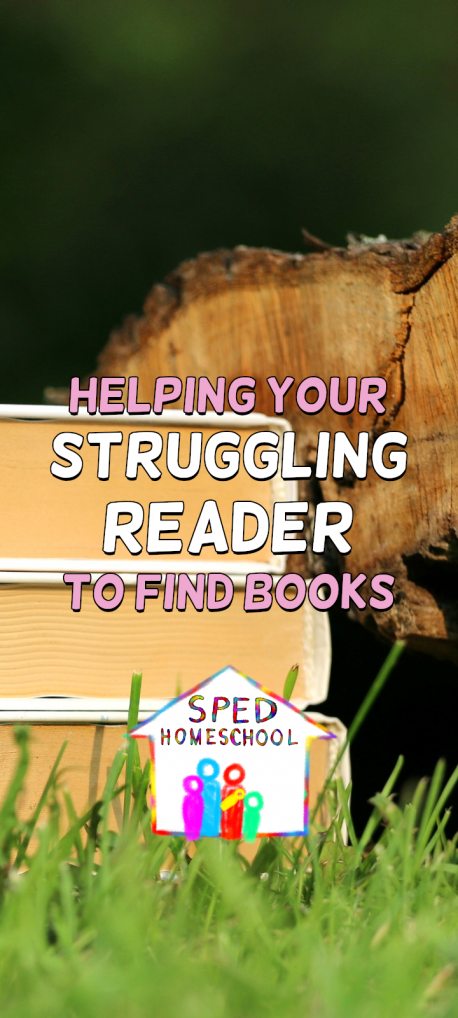
We all want our kids to enjoy reading, to know what it feels like to get lost in a book, but for many of our kids with disabilities and reading challenges this dream seems a pretty lofty one. While there is no one-size-fits-all for struggling readers, here are a few resources for helping your struggling reader to find books that he or she can enjoy.
Lexile Scores
Using the Lexile Score book finder tool, you can search for books that fit both your child’s interests and abilities. The book finder provides information about the book, targeted vocabulary based on your child’s reading ability, and the expected comprehension for that particular book. For more information on how to use Lexile, read Using Lexile Scores to Help your Struggling Reader.
Ebooks
For some kids, the challenge of reading lies in being able to track the words across the page and from line to line. As reading levels get progressively challenging, the words shrink on the page, and pages are filled with more and more text. Visually, this can be a real challenge for our struggling readers. Ebooks offer a simple solution.
Ebooks, in all of their different formats and devices, allow the reader to adjust the font size, the background, and various other settings. In this way, the child can adjust the words on the page to fit his comfort level while attempting a more challenging reading level. Additionally, some ebook resources, like Bookshare, also provide a gradient text that changes colors from line to line, allowing your child to more easily track from one line to the next.
Audiobooks
As parents and educators, we tend to think of eye-reading as the only form of reading. While it’s a great goal to get our children reading books for themselves, there is also tremendous value in ear-reading or audiobooks. The elements of a story, the skills of comprehension, and the nuances of language can all be taught with an audiobook. There is also an advantage to separating these skills from the skill of eye-reading, allowing your child to work one skill area at a time.
Your local library can be a great resource for finding audiobooks. Additionally, check out these other websites and resources:
Genres
Don’t underestimate the importance of introducing different genres. Just as we wouldn’t assume that a child that hates one vegetable will hate them all, we can’t assume that a child that hates one type of book will hate them all. Some children prefer fantasy, getting lost in a different world or time; but for other children, particularly those with reading challenges, the foreignness of a fantasy world can add to the challenge of reading and understanding. Try realistic fiction, nonfiction, or historical fiction from a time that your child especially enjoys.
When introducing a new genre, choose a book slightly below your child’s reading level. Make it as accessible as possible until the child’s interest is piqued. Once your child finds a genre he or she really likes, your child will be more willing to attempt a higher reading level. But be sure to baby step and take one challenge at a time.
Just because a child has dyslexia or another reading challenge, doesn’t mean that child can’t enjoy the world of literature and great books. Our kids can still get lost in a book, but we may have to adjust our expectations of what that looks like.

